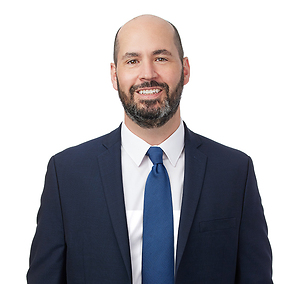Overview
On February 12, 2012, a Gulfstream G-IV overran the runway at Bukavu-Kamenbe Airport in the Democratic Republic of Congo, killing four and causing substantial damage to the airplane. The airplane had been purchased by TridentAS on behalf of Congolese mining company Socikat; Socikat transferred the airplane to Lima Delta Company, but remained the beneficial owner. The ownership entities were named insureds on a broad horizon aviation insurance policy, and the crash resulted in extensive insurance coverage litigation—including lawsuits in both Delaware and Georgia and multiple appellate opinions. The insurers prevailed in a recent Georgia Court of Appeals opinion, Lima Delta Company v. Global RI-022 Aerospace, Inc., which may finally bring the litigation to a close.
 The insurance policy provided that it “shall not apply while a scheduled aircraft is in flight unless operated by any appropriately rated two pilot flight crew” who were to have “completed the manufacturer’s recommended ground and flight training school for the applicable make and model aircraft within the preceding twelve (12) months of the date he or she acts as a pilot in command [or second in command].” One of the pilots at the time of the accident had not completed the required training, but the insured contended that their broker agreed to secure a waiver of the pilot training requirements. However, the policy specifically provided that its terms could only be amended or waived by an endorsement issued by the insurer, and the policy contained no such endorsement.
The insurance policy provided that it “shall not apply while a scheduled aircraft is in flight unless operated by any appropriately rated two pilot flight crew” who were to have “completed the manufacturer’s recommended ground and flight training school for the applicable make and model aircraft within the preceding twelve (12) months of the date he or she acts as a pilot in command [or second in command].” One of the pilots at the time of the accident had not completed the required training, but the insured contended that their broker agreed to secure a waiver of the pilot training requirements. However, the policy specifically provided that its terms could only be amended or waived by an endorsement issued by the insurer, and the policy contained no such endorsement.
The insureds also argued that the pilot warranty clause was unenforceable because it was located in the declarations page and not labeled as an exclusion. The court, though, found that there was no legal prohibition against placing an otherwise clear and unambiguous pilot warranty clause in the declarations page.
The other main issue was whether Georgia law or Delaware law should apply. Lima Delta and Trident were located in Delaware, but in a prior appeal, the court determined Georgia law would apply since the insurance policy was applied for, paid for, and delivered through the insureds’ broker in Georgia. In this appeal, the insureds argued that the broker was not their agent, and could not subject the insureds to Georgia law. The court disagreed, noting the longstanding relationship between the insureds and the broker, as well as precedent that a broker is considered the agent of the insured.
This decision is not an anomaly, as most states will enforce pilot warranty clauses. What may be more interesting—and unfortunate—is the effort and expense that went into reaching what seems to be a fairly straight-forward and uncontroversial resolution. This dispute generated lawsuits in two states and at least three appellate opinions. The court characterized discovery as “highly combative,” and stated, “We note with chagrin that in this voluminous record, comprising 77 volumes and more than 20,000 pages, numerous volumes are dedicated solely to discovery disputes and that depositions on both sides are significantly prolonged by unnecessary arguments between counsel and irrelevant and/or repetitive questioning.” This aspect of the case, we hope, is an anomaly.
